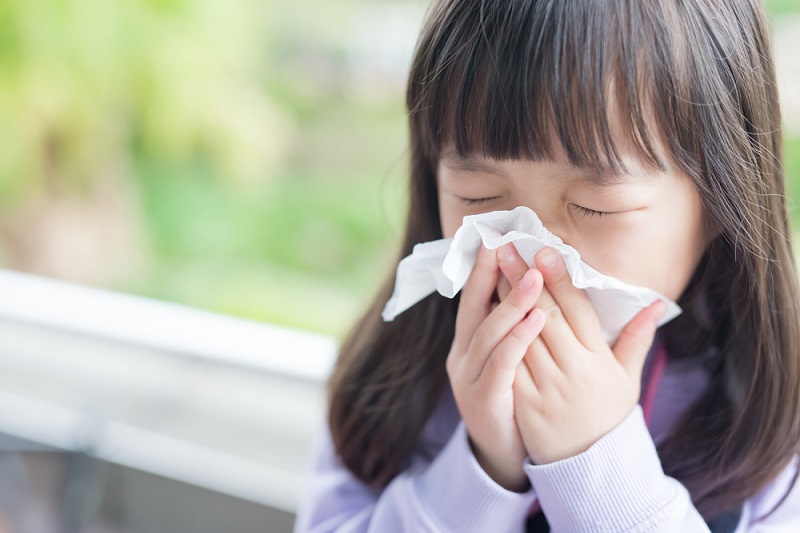These Cold-Prevention Myths Won't Keep Your Kids Healthy This Winter (But Here's What Will)

"Don't go outside with wet hair, you'll catch a cold!" "Take vitamin C to ward off the sniffles." "Stay inside during cold season."
Chances are, you've heard these words of advice before, likely from your parents when you were little. Indeed, a new poll, published yesterday (Jan. 21), shows that many parents have tried these strategies to keep their kids from getting sick — even though there's little evidence that they actually work.
The poll, which was conducted in October 2018, surveyed more than 1,100 parents with children ages 5 to 12. It found that about 70 percent of parents tried to prevent their little ones from catching a cold by employing folklore strategies. For example, about 52 percent told their children not to go outside with wet hair, and 48 percent thought it was beneficial to encourage their child to stay indoors during cold season.
But these strategies have not been shown to make a difference with regard to catching a cold, according to researchers from the University of Michigan's C.S. Mott Children's Hospital. [25 Scientific Tips For Raising Happy (& Healthy Kids]
What's more, 51 percent of surveyed parents reported giving their child a vitamin or supplement, such as vitamin C or zinc, to prevent colds, but again, these products have not been definitely proven to prevent colds.
But the good news is that the vast majority of parents — 99 percent — also reported that they encouraged good personal hygiene in their kids to prevent colds. And this is a strategy that's is backed by science.
For example, 99 percent of parents said they encouraged their children to wash their hands frequently, 94 percent said they told their children not to put their hands in their mouth or nose, and 94 percent said they encouraged their children not to share food or drink with other people.
Sign up for the Live Science daily newsletter now
Get the world’s most fascinating discoveries delivered straight to your inbox.
"It's important for parents to understand which cold prevention strategies are evidence-based," Dr. Gary Freed, co-director of the poll and a pediatrician at Mott Children's Hospital, said in a statement. "While some methods are very effective in preventing children from catching the cold, others have not been shown to actually make any difference."
The researchers noted that vitamins and supplements are not regulated the way that drugs are, and that they do not need to be proven to work in order to be sold. "These are products that may be heavily advertised and commonly used but none have been independently shown to have any definitive effect on cold prevention," Freed said.
Other folklore strategies, such as the idea of not going outside with wet hair, have likely been passed down from generation to generation without being confirmed by scientific studies.
The best strategy for cold prevention is for parents to focus on decreasing the spread of cold viruses through good hygiene, such as hand washing and avoiding direct contact with sick people.
- Easy Answers to the Top 5 Science Questions Kids Ask
- How to Protect Yourself from Cold and Flu in the New Year
- 9 Weird Ways Kids Can Get Hurt
Originally published on Live Science.

Rachael is a Live Science contributor, and was a former channel editor and senior writer for Live Science between 2010 and 2022. She has a master's degree in journalism from New York University's Science, Health and Environmental Reporting Program. She also holds a B.S. in molecular biology and an M.S. in biology from the University of California, San Diego. Her work has appeared in Scienceline, The Washington Post and Scientific American.









